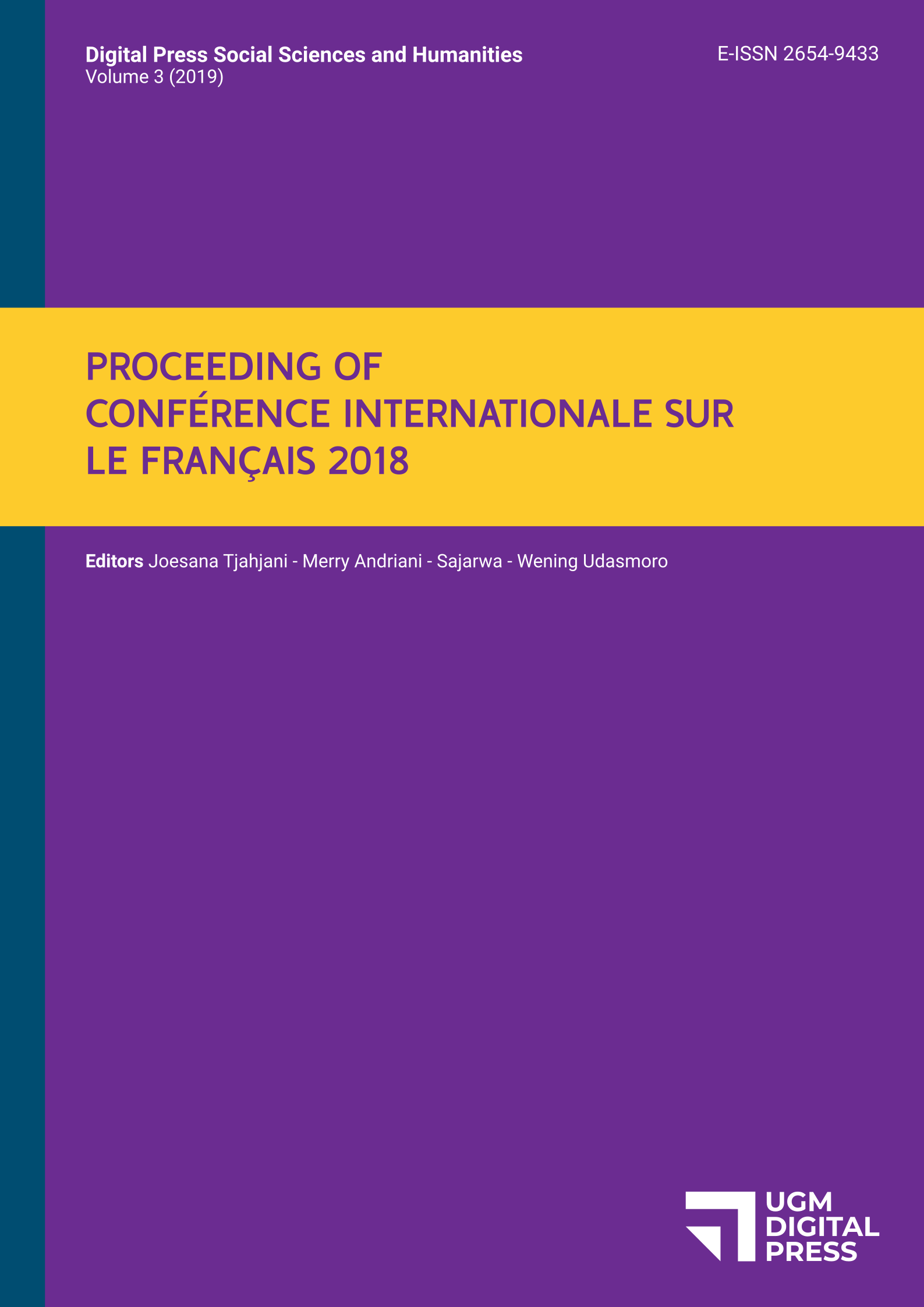L'anglicisme dans la langue française
Danny Susanto
Universitas Indonesia, Depok, Indonesia
dcamilo@yahoo.com
Abstract
The purpose of this study is to analyze the phenomenon known as “anglicism”: a loan made to the English language by another language. Anglicism arose either from the adoption of an English word as a result of a translation defect despite the existence of an equivalent term in the language of the speaker, or from a wrong translation, as a word-by-word translation. Said phenomenon is very common nowadays and most languages of the world including making use of some linguistic concepts such as anglicism, neologism, syntax, morphology etc, this article addresses various aspects related to Anglicisms in French through a bibliographic study: the definition of Anglicism, the origin of Anglicisms in French and the current situation, the areas most affected by Anglicism, the different categories of Anglicism, the difference between French Anglicism in France and French-speaking Canada, the attitude of French-speaking society towards to the Anglicisms and their efforts to stop this phenomenon. The study shows that the areas affected are, among others, trade, travel, parliamentary and judicial institutions, sports, rail, industrial production and most recently film, industrial production, sport, oil industry, information technology, science and technology. Various initiatives have been implemented either by public institutions or by individuals who share concerns about the increasingly felt threat of the omnipresence of Anglicism in everyday life.
Keywords
anglicism, linguistic exchange, neologism, franglais
References
dcamilo@yahoo.com
Abstract
The purpose of this study is to analyze the phenomenon known as “anglicism”: a loan made to the English language by another language. Anglicism arose either from the adoption of an English word as a result of a translation defect despite the existence of an equivalent term in the language of the speaker, or from a wrong translation, as a word-by-word translation. Said phenomenon is very common nowadays and most languages of the world including making use of some linguistic concepts such as anglicism, neologism, syntax, morphology etc, this article addresses various aspects related to Anglicisms in French through a bibliographic study: the definition of Anglicism, the origin of Anglicisms in French and the current situation, the areas most affected by Anglicism, the different categories of Anglicism, the difference between French Anglicism in France and French-speaking Canada, the attitude of French-speaking society towards to the Anglicisms and their efforts to stop this phenomenon. The study shows that the areas affected are, among others, trade, travel, parliamentary and judicial institutions, sports, rail, industrial production and most recently film, industrial production, sport, oil industry, information technology, science and technology. Various initiatives have been implemented either by public institutions or by individuals who share concerns about the increasingly felt threat of the omnipresence of Anglicism in everyday life.

